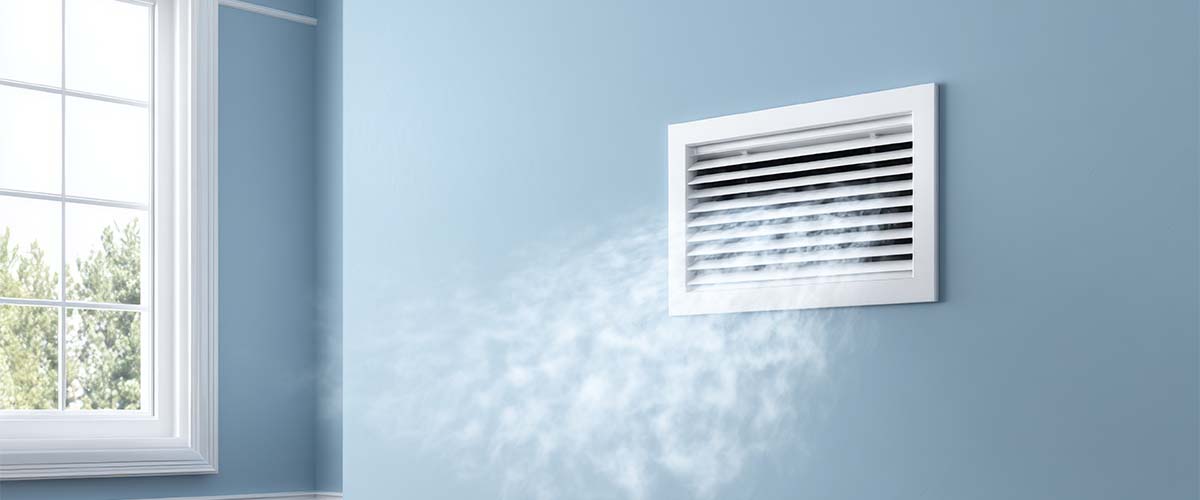When the temperatures start to dip and homeowners switch their HVAC systems from cooling to heating, it’s common to notice unexpected smells coming from the vents. And while some of these odors are nothing to worry about, others can signal maintenance issues or safety hazards that shouldn’t be ignored. Understanding what’s normal — and what isn’t — can help you protect your HVAC system, avoid unnecessary worry, and keep your home safe and comfortable throughout the winter. Below, we break down the most common heating smells, what each one means, and what to do if you encounter them.
The Burning Dust Smell (Normal)
If your heat hasn’t been on in a while, the first blast of warm air may come with a distinct burning odor. This happens because dust naturally settles on your heating elements, burners, or heat strips during the off-season. When your system fires up, it burns off this dust.
- Is this dangerous? No. As long as the smell disappears within 15–30 minutes, this odor is completely normal.
- What to do. Change your air filter if it’s been more than 30 days. Let the heat run to burn off the dust. If the burning smell lasts longer than 30 minutes, call an HVAC professional.
Musty or Mildew Odor (Not Normal)
A musty smell is a common sign of moisture and microbial growth within the HVAC system — especially in climates with hot, humid summers.
- Possible causes: dirty air filter, mold on the coil or in the drain pan, moisture inside ductwork, clogged or improperly sloped condensate lines.
- Why this matters: Musty odors can affect indoor air quality and aggravate allergy or asthma symptoms.
- What to do: Replace the air filter immediately. Run the system to see if the smell dissipates. If it doesn’t, schedule a system cleaning or duct inspection.
Electrical or Metallic Burning Smell (Serious)
If your heat smells like something electrical is burning, take action immediately. This smell often indicates failing parts or overheating.
- Possible causes: blower motor overheating, wiring damage, failing capacitor, worn bearings, electrical short.
- Action: Turn off the system at the thermostat and breaker, and call an HVAC technician right away.
Burning Plastic or Smoky Odor (Urgent)
A smoky or burning-plastic smell may indicate something caught in the system or a component overheating.
- Possible sources: foreign objects in ductwork, toys or debris near floor vents, failed electrical components, cracked heat exchanger.
- Action: Turn the system off immediately. Inspect visible vents for debris. If the smell persists, contact a professional.
Rotten Egg or Sulfur Smell (Emergency)
This is the most dangerous odor you can encounter. Natural gas is odorless, but utility companies add a sulfur-like smell to alert homeowners to leaks.
- Action: Leave the home immediately. Do not turn switches on or off. Call your gas provider and report a potential leak. After the home is cleared, have an HVAC technician inspect the system.
Oily Burning Smell (Oil Furnaces Only)
If your home uses an oil furnace, a burning oil smell can indicate a clogged burner, cracked heat exchanger, or problems with the oil filter or nozzle. This should always be inspected by a trained technician.
Why Heating Smells Happen
Dust buildup, moisture, system age, poor airflow, and lack of regular maintenance are the top causes behind unusual heating odors. Regular seasonal tune-ups help prevent mold growth, dirty burners, compressor failure, electrical overheating, and excessive dust buildup.
When to Call an HVAC Professional
Call immediately if you notice electrical or metallic burning, smoke or burning plastic, rotten egg or sulfur smell, burning smell that lasts more than 30 minutes, musty smell that doesn’t fade, or any odor paired with poor airflow or loud noises.
Heating odors are common, but understanding the difference between harmless and hazardous smells is key to protecting your home. A short-lived burning-dust smell is normal. But if you detect musty, electrical, smoky, or sulfur-like odors, turn the system off and schedule service. Being proactive keeps your home safe, your HVAC system healthy, and your winter stress-free.



